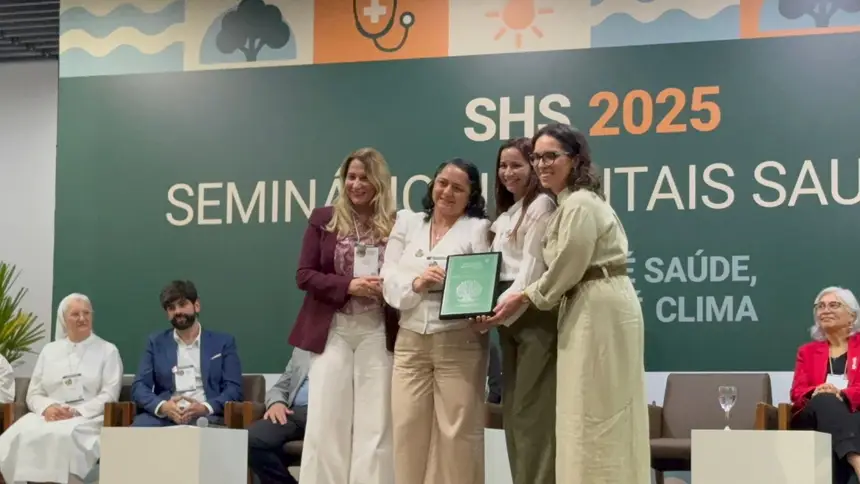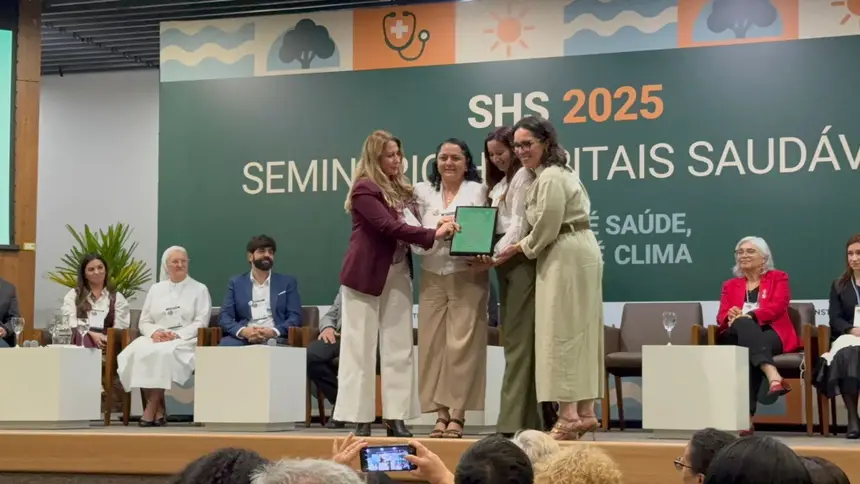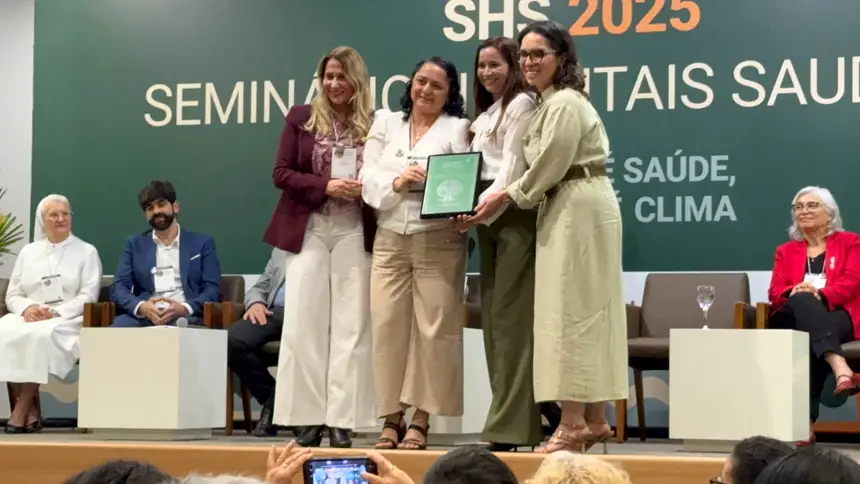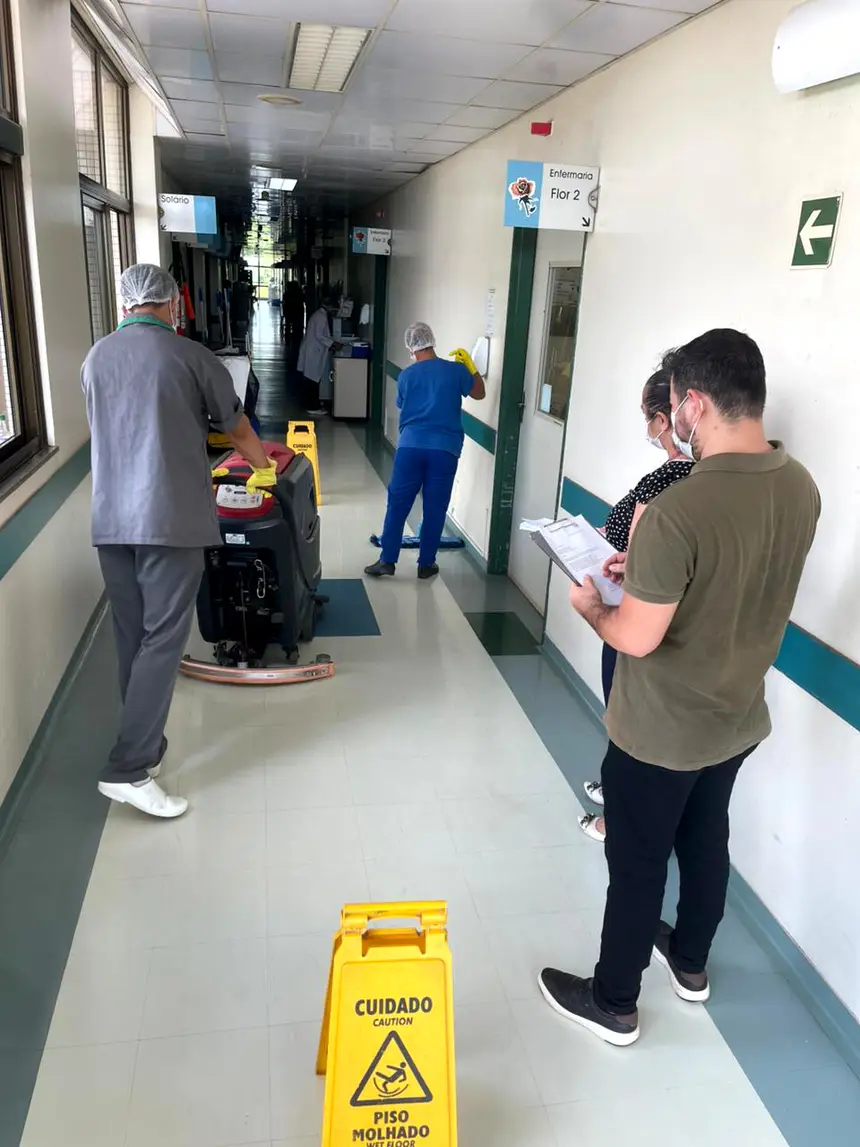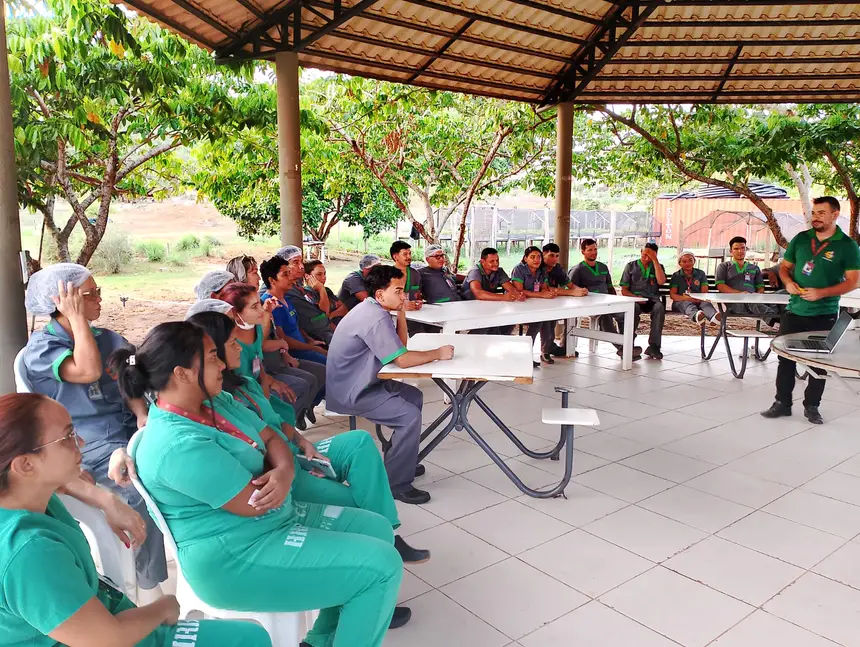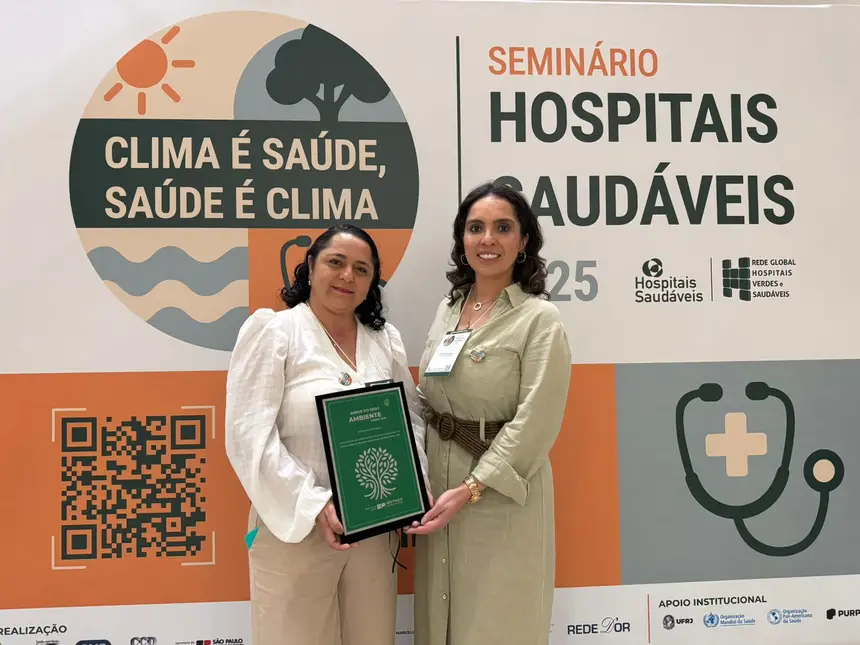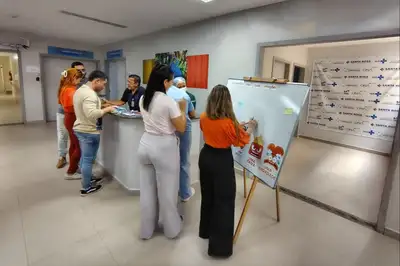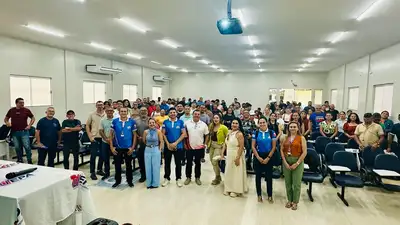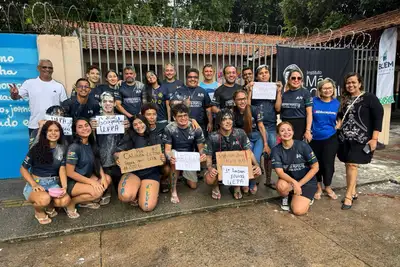Regional Hospital of Baixo Amazonas is among the 15 best in the country at the 2025 Friend of the Environment Award
Sustainable management project of HRBA, in Santarém (PA), is nationally recognized for integrating the UN Sustainable Development Goals into the hiring of hospital services
The Regional Hospital of Baixo Amazonas Dr. Waldemar Penna (HRBA), in Santarém (PA), was selected among the 15 best projects in Brazil in the 18th edition of the Friend of the Environment Award (PAMA) 2025, promoted by the Healthy Hospitals Project. The initiative recognizes the most effective environmental sustainability actions developed by health institutions operating within the Unified Health System (SUS) across the country.
This year, PAMA received 233 projects from 18 Brazilian states, with proposals that reinforce the sector's commitment to building a more sustainable, inclusive, and resilient SUS. The award ceremony was held on October 28, at the Sírio-Libanês Hospital in São Paulo.
The awarded project, titled "Sustainable Facilities Management: Adoption of the Sustainable Development Goals (SDGs) in the structuring of the contract for the provision of Hygiene and Hospital Cleaning services in a Public Hospital in Baixo Amazonas," was developed by Ana Paula Sá, Gabriella Durans, Jarlison Sá, Matheus Coutinho, Raphaella Oliveira, and Wandria Quintino.
HRBA was the only public hospital in the northern and northeastern regions to receive the award. The Pará unit is about to complete 19 years of existence and is a reference in medium and high complexity for a population of 1.4 million inhabitants from 29 municipalities. The award reflects the importance of sustainability in the work developed within the Regional Hospital of Baixo Amazonas, a fundamental theme that is widely discussed today, especially in the year of the 30th United Nations Climate Change Conference (COP30), in November, in the state of Pará.
Sustainability applied to public management
The work of HRBA innovated by incorporating the UN Sustainable Development Goals (SDGs) into the contractual management of hygiene and hospital cleaning services — an essential activity for the safety and functioning of any health unit.
The adopted model establishes measurable performance criteria in areas such as people management, operational efficiency, reliability, customer experience, and ethical governance, making the contract a strategic instrument for institutional transformation.
Matheus Coutinho, general director of HRBA, highlighted that the project was born from an internal challenge and became a national reference.
"We wanted to raise the quality standard of services without increasing costs, and we found in sustainability a way to achieve this balance. Today we have a more efficient operation, with very significant environmental and human results," he explained.
The contractual clauses were structured based on three axes: operational, socio-environmental, and governance and compliance.
In operational, the use of biodegradable products, reduction of water and energy consumption, and constant training of teams are highlighted.
In the socio-environmental axis, there is the appreciation of decent work, reduction of disposables, sustainable logistics, and health and occupational safety actions.
And in governance and compliance, transparency, independent audits, and strict control of contractual execution are highlighted.
Wandria Quintino, Facilities supervisor at HRBA, emphasizes that the change was felt in the daily lives of the operational teams. "Sustainability has ceased to be a discourse and has become practice. Each employee understands their role, from the correct separation of waste to the conscious use of materials. This has generated engagement and pride among the workers," she said.
Significant results and regional impact
The implementation of the model brought concrete results for hospital management:
Composting of 4.5 tons of organic waste monthly;
More than 20% of waste directed to recycling;
User satisfaction above 95%;
Reduction of operational costs and improvement of ESG indicators;
Decrease in absenteeism and turnover among employees;
100% increase in training hours;
Technical standardization and legal security in contracts.
Moreover, the project contributed to strengthening the engagement of local suppliers with the SDGs and improving the hospital's performance in national audits and certifications, such as the National Accreditation Organization (ONA).
For Raphaella Oliveira, corporate project coordinator at the Mais Saúde Institute, national recognition is an incentive to expand the reach of sustainable practices within the network.
"HRBA has been a living laboratory of innovation in public management. Seeing this work recognized in such a prestigious award shows that we are on the right track — and that other SUS institutions can also adopt this model," she emphasized.
Challenges and next steps
Among the challenges overcome by the team are the alignment between sustainability and public legislation, facing budgetary limitations, and the need for intersectoral engagement.
According to the authors, the project showed that sustainability can — and should — be a strategic guideline for hospital management, and not just a sporadic practice.
The next steps include continuous monitoring of results, periodic review of contractual clauses, training of management teams, and expansion of the model to other contracts of the hospital and units managed by the Mais Saúde Social Institute, the organization responsible for managing HRBA, in partnership with the State Department of Public Health (Sespa).
Text: Edson Fonseca/Ascom HRBA


